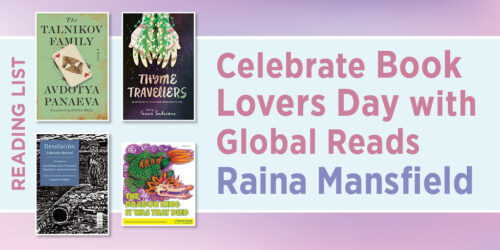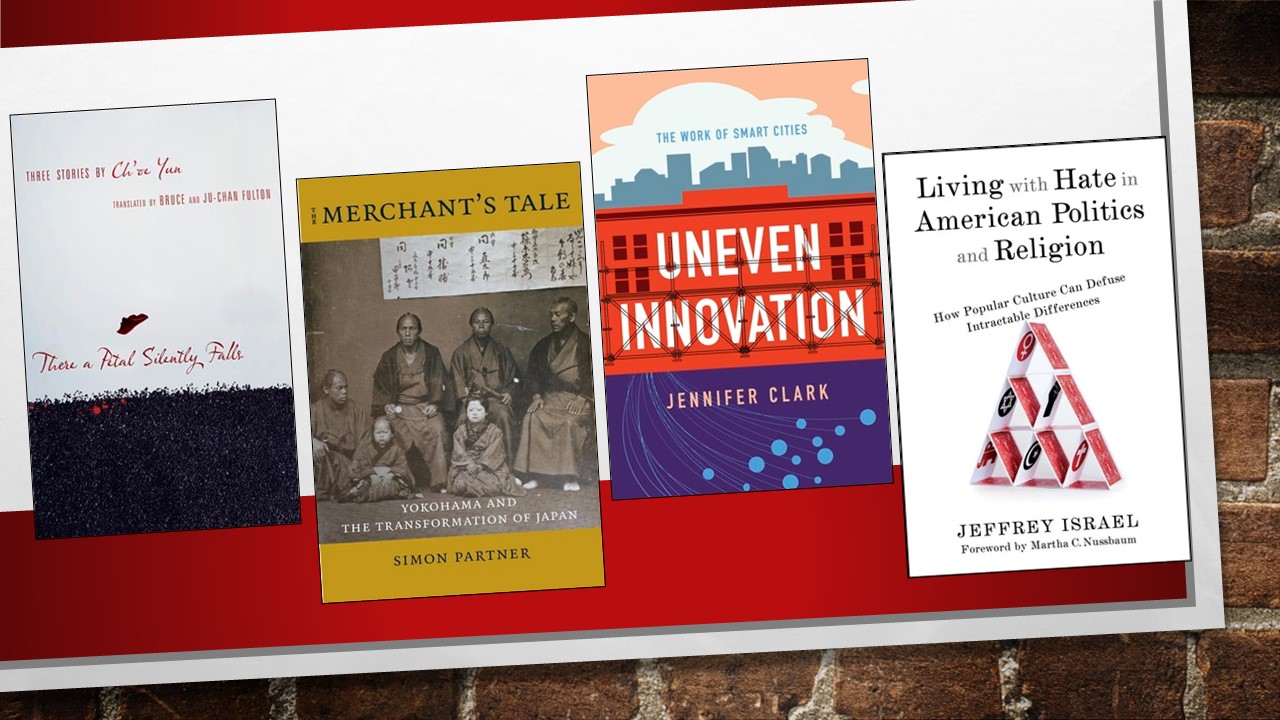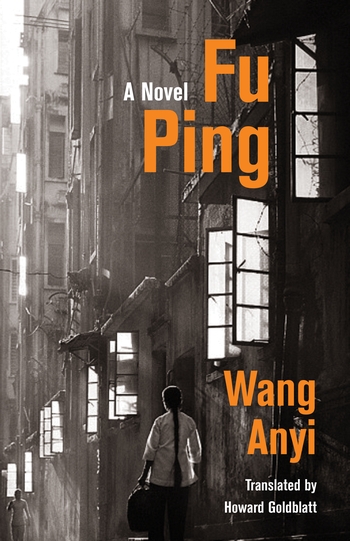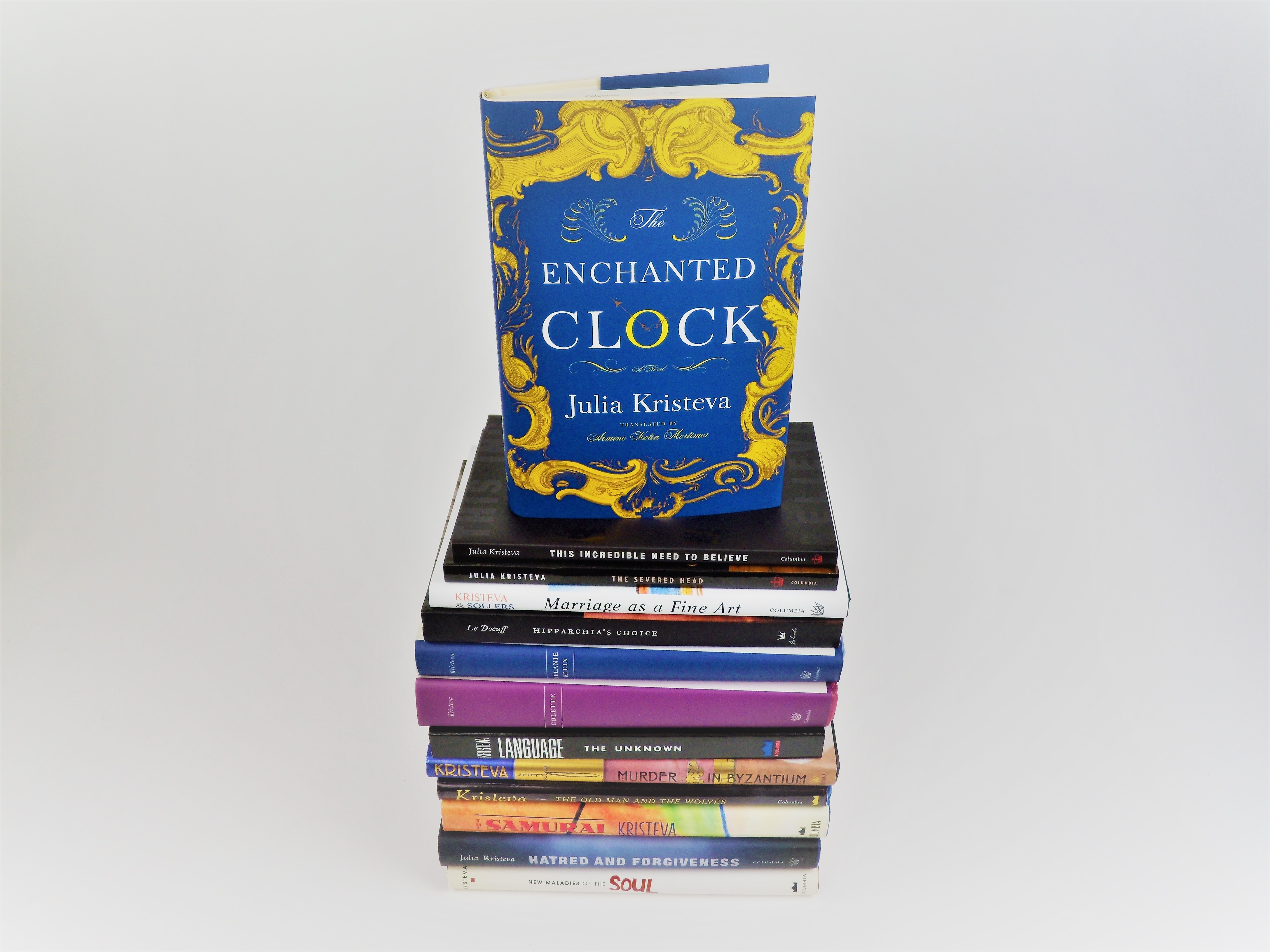Q&A: Ch’oe Yun and Chungmoo Choi on There a Petal Silently Falls
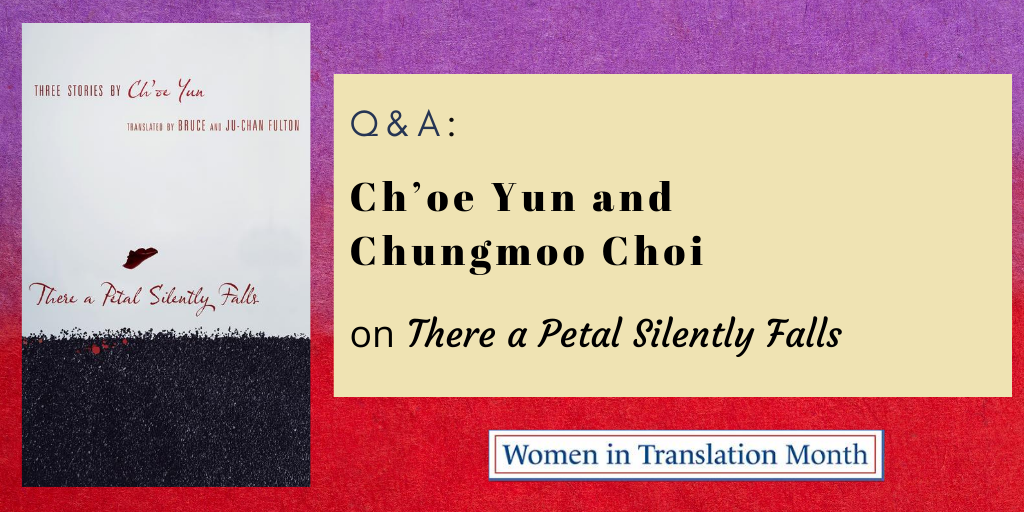
“Ch’oe is a versatile writer who cloaks stark perceptions of individual and social trauma with elegant craft, poignant metaphor, and occasional, sardonic flashes of humor.”
~Barbara Lloyd McMichael, Seattle Times
We’re closing out Women in Translation Month with a Q&A on There a Petal Silently Falls: Three Stories by Ch’oe Yun, one of our most popular books and an astounding work of fiction. This discussion between Chungmoo Choi of UC Irvine, (author of the forthcoming book, Healing Historical Trauma in South Korean Film and Literature) and Ch’oe Yun offers an inside look at Ch’oe’s inspiration and thoughts behind writing each story in this collection.
• • • • • •
Chungmoo Choi: There a Petal Silently Falls is a story about the victims of state violence during the Kwangju Uprising in 1980. While the novella presents the harrowing tale of a guilt-laden girl who abandons her dying mother on the streets of Kwangju, the literary style you adopt is sorrowfully exquisite and mesmerizing. What motivated you to write a brutally violent story with such beautiful language like “a poet who turns ugly words into beautiful ones”? (p. 107)
Ch’oe Yun: When the Kwangju Uprising occurred, I was a student in southern France and therefore was absent from the events?. My absence may have to do with the girl’s sense of guilt. However, I had access to newspaper articles about Kwangju, which my friends from various countries had brought me. Considering that strict censorship was imposed on the reports about Kwangju, I had more information and photos than most Koreans were allowed to have. Based on that data, I began to conceive the novella. At the time, Korea had just gone through a period of intense industrialization, the speed of which no one had imagined before. The Kwangju Uprising took place at that very moment. In this culture of dromology, many historical facts are either distorted or forgotten. I was afraid the incident might be forgotten, so I paid attention to two points. One was to instate Kwangju as a universal incident of historical violence. Therefore, I avoided realistic narration, even if readers of the time might have demanded it even indirectly. The other point was to write an aesthetic novel above and beyond historical temporality in order for the Kwangju story not to be forgotten. I didn’t want this story to be read swiftly along a chronological line. I wanted the relationship between readers and the story to deepen as readers dwell in words and sentences that defy commonsensical reading, as the event in the story demands such attention.
CC: There is a major shift in the girl’s story after she crosses the river of fire. Once she crosses the river, she confronts her guilt and forgives herself. Did you intend such a message of honest confrontation with the past and self-forgiveness for healing historical trauma?
CY: The girl wanders through hills and waters of Korea. In a way, she is a symbol and messenger who embodies and carries the historical event of the Kwangju Uprising. Her disheveled appearance, the bundle she carries… The journey of this lost girl contaminates those she encounters along the way with the trauma of Kwangju. As the girl crosses the river, she reaches a certain epistemological stage. To admit that she freed herself from the grip of her dying mother in order to live gives a meaning and goal for her escape. If we consider that healing, that could be healing for the girl. Although with such a goal—which in the narrative is a journey to search for her (already dead) brother—this journey is that of losing one’s own sanity: a journey that leaves behind a trace of loss. This is also what violent incidents in history, including Kwangju, leave behind.
CC: “Whisper Yet” is the story of a fugitive Communist who shelters in the household of refugees from North Korea. You wrote this story in 1992, soon after the collapse of the Berlin Wall in 1989. More than thirty years later, we may possibly witness the emergence of a new type of cold war. What message did you intend to convey to the readers then and what do you think this story means to today’s readers?
CY: The fall of the Berlin Wall brought forth a short-lived unification fever among South Koreans who seemed to believe that North and South can easily open a unification dialogue predicated upon the idea of “one nation,” “one language,” and “shared blood.” I wrote “Whisper Yet” suspecting that such a fever was sentimental desiderium and that one passionate hug between presumed brothers would not solve the problem. “Dialogue” is a form of a very masculine, political contestation. When North Korean refugees began to cross the border to reach South Korea, I believed Koreans needed language that is permeated (and permeates) in each other’s lives rather than a “dia-logue.” The two Koreas have lived as separate nations for quite a long time with disparate ways of life, that of strangers. I suggest whispering as an alternative medium to understand each other’s estranged order of life. In South Korea, there are groups of people who harbor fantasies toward North Korea, whether that is sentimentalism, political aspiration, or nationalism. Literature deals with the flesh under the skin of reality. When the scales of fantasy fall off, they will see the reality of the unfathomable North Korea as it is. That is when a candid whisper will begin.
CC: In “The Thirteen-Scent Flower,” you once again experiment with style by contrasting a fable-like story of the couple Bye and Green Hands with a dry yet sometimes comic style depicting businesspeople and academics. The innocent characters of the almost mythic fable are driven out of the world by the calculating greed of the successful people. While the story may accurately depict the realities of a capitalistic society, do you think your stylistic experiments influence the way we view the world?
CY: There are producers of beauty. Human beings and cultures are nurtured by beauty. But the time of enjoyment of beauty as such is over. In other words, beauty is no longer the source of nourishment for human beings. Modern people, do you know what is beautiful? Can you dare say you are worthy of enjoying beauty? Those are the questions I am asking in this story. Like the thirteen perfumes that the young couple creates in the story, beauty stays by our side for a moment and disappears. This is a small farewell to such evanescent beauty.

